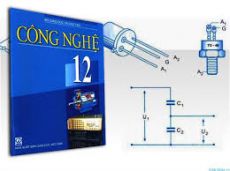Đề thi HK1 môn Tiếng Anh 9 năm 2022-2023
Trường THCS Đồng Khởi
-
Câu 1:
The city has recently set _____ a library in the West Suburb.
A. up
B. off
C. out
D. down
-
Câu 2:
My grandfather is the___ oldest artisan in the village; Ngoc's grandfather is the oldest.
A. for
B. between
C. and
D. from
-
Câu 3:
Lots of people choose to buy houses in the suburbs ___________ they can avoid the noise and pollution in the city.
A. although
B. when
C. so that
D. so as
-
Câu 4:
They can’t decide where _______ first.
A. go
B. to go
C. went
D. going
-
Câu 5:
The two countries agreed to _____ full diplomatic relations.
A. give up
B. set up
C. deal with
D. over come
-
Câu 6:
It’s difficult to _____ changes in technology.
A. go with
B. look through
C. keep up with
D. turn up
-
Câu 7:
All the best theatres and restaurants are ___________ within a few minutes' walk of each other.
A. situated
B. laid
C. seated
D. stood
-
Câu 8:
Would you like to live in a modern house or a(n) ___________ cottage?
A. picturesque
B. awful
C. terrible
D. bad
-
Câu 9:
You don’t like playing computer games, ___________?
A. do you
B. don’t you
C. are you
D. aren’t you
-
Câu 10:
My dad enjoys ___________ sports very much.
A. watch
B. to watch
C. watching
D. to watching
-
Câu 11:
She asked me if I ___________ music.
A. like
B. will like
C. liked
D. can like
-
Câu 12:
The new camera didn’t work, ___________ I took it back to the shop.
A. so
B. if
C. such
D. and
-
Câu 13:
Every nation has respect for their long-preserved ______.
A. behaviours
B. practices
C. traditions
D. traditional
-
Câu 14:
He asked ___________ it was too early to apply for the course.
A. if
B. for
C. when
D. that
-
Choose the word that is stressed differently from that of the other words
Câu 15:
Choose the word that is stressed differently from that of the other words: excited, confident, interested, memorable
A. excited
B. confident
C. interested
memorable
-
Câu 16:
Choose the word that is stressed differently from that of the other words: carefully, correctly, seriously, personally
A. carefully
B. correctly
C. seriously
D. personally
-
Choose the word whose underlined part is pronounced differently from that of the others
Câu 17:
Choose the word whose underlined part is pronounced differently from that of the others: account, country, about, sound
A. account
B. country
C. about
D. sound
-
Câu 18:
Choose the word whose underlined part is pronounced differently from that of the others: correction, question, nation, inspiration
A. correction
B. question
C. nation
D. inspiration
-
Câu 19:
Choose the word whose underlined part is pronounced differently from that of the others: gather, earth, theater, thank
A. gather
B. earth
C. theater
D. thank
-
Read the text and choose the correct answer A, B, C or D for each of the gaps
After a tour in Cu Chi, we are moving to Mot Thoang Vietnam craft village (20) ______ at Phu Binh Village, Ho Chi Minh City. Arriving at Mot Thoang Vietnam, we observe on-the-spot (21) ______ craft persons weave tho cam (ethnic brocade fiber), (22) ______ wooden logs into wonders and weave rattan into home appliances. Mot Thoang Vietnam can (23) ______your need to know what many of Vietnam's traditional craft villages are like. The quarter of craft villages at Mot Thoang Vietnam is quiet, but not boring (24) ______ craft persons chat amidst the clacking sound of wooden cudgels hitting a chisel caused by a sculptor or a (25) ______ used for weaving cloth. Sitting a little far from the sculptor and the weaver (26) ______ the craftsmen and women in their simple but unique attire making giay gio (poonah paper) and inlaid gold-leaf items, doing the (27) ______ and the farming. We enjoy a traditional Vietnamese lunch at the village. After lunch, more walking to the traditional house of Vietnam from South to North with different (28) ______. Watching a traditional dance show by the (29) ______ people.
(htpwww.impresstravel.com/travel-destinations/a-visit-passage-to-vietmam-crafts-village-in-cu-chi.html)
Câu 20:
(20) ________
A. located
B. locating
C. locate
D. locates
-
Câu 21:
(21) ________
A. what
B. how
C. whether
D. why
-
Câu 22:
(22) ________
A. knit
B. cast
C. weave
D. carve
-
Câu 23:
(23) ________
A. satisfy
B. buy
C. make
D. stop
-
Câu 24:
(24) ________
A. although
B. while
C. whereas
D. as
-
Câu 25:
(25) ________
A. chair
B. table
C. loom
D. lamp
-
Câu 26:
(26) ________
A. is
B. was
C. were
D. are
-
Câu 27:
(27) ________
A. ironing
B. exercise
C. research
D. embroidery
-
Câu 28:
(28) ________
A. architectural
B. architecture
C. architect
D. architectonic
-
Câu 29:
(29) ________
A. ethnocentric
B. ethnically
C. ethnicity
D. ethnic
-
Complete the sentences
Câu 30:
I / arrive / Ha Noi Train station / 2 p.m / last Monday.
A. I arrived at Ha Noi Train station at 2 p.m last Monday.
B. I arrived at Ha Noi Train station on 2 p.m last Monday.
C. I arrived at 2 p.m Ha Noi Train station at last Monday.
D. I arrived from Ha Noi Train station at 2 p.m last Monday.
-
Câu 31:
I / already / visit / lot / famous / places / Ha Noi.
A. I has already visited a lot of famous places in Ha Noi.
B. I have already been visited a lot of famous places in Ha Noi.
C. I already have visited a lot of famous places on Ha Noi.
D. I have already visited a lot of famous places in Ha Noi.
-
Câu 32:
I / really / impress / beauty of the city / by / friendliness / people.
A. I am really impresses by the beauty of the city and by the friendliness of its people.
B. I am really impressed by the beauty of the city and by the friendliness of its people.
C. I am really impressed by the beauty of the city although by the friendliness of its people.
D. I am really impressed by the beauty of the city but by the friendliness of its people.
-
Câu 33:
I / return / home / next Friday.
A. I will home return next Friday.
B. I will return home next Friday.
C. I returned home next Friday.
D. I will be return home next Friday.
-
Read the following passage and mark the letter A,B, C,D to indicate the correct answer to each of the questions
For formal ceremonies, men would have two additional items, a long gown with slits on either side, and a turban, usually in black or brown made of cotton or silk. In feudal times, there were strict dress codes. Ordinary people were not allowed to wear clothes with dyes rather than black, brown or white. Costumes in yellow were reserved for the King. Those in purple and red were reserved for high ranking court officials, while dresses in blue were exclusively worn by petty court officials. Men's dress has gradually changed along with social development.The traditional set of a long gown and turban gave way to more modern-looking suits, while business shirts and trousers have replaced traditional long sleeved shirts and wide trousers. Traditional costumes still exist and efforts are increasingly being made to restore traditional festivals and entertainment which incorporate traditional costumes.For women, the outer garment is a special silk gown called an “ao tu than” which is brown or light brown in colour with four slits divided equally on its lower section.The second layer is a gown in a light yellow colour and the third layer is a pink gown. When a woman wears her three gowns, she fastens the buttons on the side, and leave those on the chest unfastened so that it forms a shaped collar. This allows her to show the different colors on the upper part of the three gowns. Today, on formal occasions women wear “ao dai”.
Câu 34:
In the past, for formal ceremonies men wore ___________.
A. dresses in blue as petty court officials
B. a long gown and a turban in black or brown
C. costumes made of red cotton or silk
D. costumes in purple or yellow not like the King
-
Câu 35:
The word “gown” in paragraph 1 is closest in meaning to________.
A. a long dress worn on formal occasions
B. a woman’s dress, especially a long one
C. piece of clothing that is worn over other clothes to protect them
D. a long piece of clothing worn by judges
-
Câu 36:
In the past, the colour was used to represent __________.
A. the rank in the society
B. the social development
C. formal ceremonies
D. the difference between men and women
-
Câu 37:
Traditional festivals _______________ .
A. promote traditional costumes
B. make men’s dresses change
C. replace traditional suits by business ones
D. encourage modern-looking suits
-
Câu 38:
All of the following are true about women’s traditional costumes EXCEPT that _______.
A. the outer gown has four equal parts on its lower section
B. the two inner gowns cannot be seen
C. we can see a shaped collar in the front
D. the gowns have different colours on the upper part
-
Find the mistake in the following sentences
Câu 39:
Find the mistake: In the end, she quit the job because it was too bored.
A. end
B. quit
C. because
D. bored
-
Câu 40:
Find the mistake: The oil price is believing to be rising again.
A. price
B. is
C. believing
D. be rising











